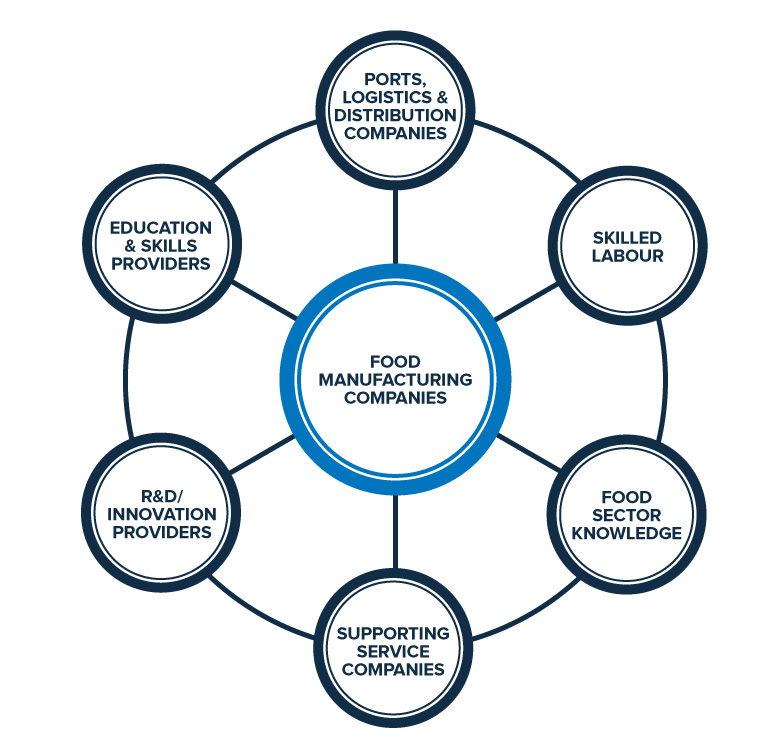South Humber’s Food Manufacturing Cluster is Outstanding in the UK. Here’s Why…
11:59 am, Monday, 1st April 2019 - 5 years ago

There are industry clusters, and then there are industry clusters…
Data for the food manufacturing sector in South Humber, focused on Grimsby, reveals a concentration of businesses and workers that is rarely seen – anywhere, in any sector, not just in the UK’s food industry. To look at labour metrics alone, the area’s food manufacturing workforce is 6 X the Great Britain average, a figure which rises to 60 X for fish and seafood processing workers [Sector employees as % of total, local authority area].
It’s quite obvious, therefore, that being located in South Humber delivers advantages for food manufacturing companies. It’s also apparent that there’s some serious industry clustering going on.
So what are those location advantages? And how do businesses benefit from being part of South Humber’s food manufacturing cluster?
It all starts with location…
When it comes to locating operations, there are two key considerations that food manufacturers and processors can’t ignore: access to food production areas, and access to consumer markets.
Historically, and most obviously, one of those production areas is the North Sea – which partly explains why Grimsby Fish Market is a European leader. But the ports of Grimsby and Immingham provide far wider market access. For example, sea freight services into Immingham bring Icelandic fish for processing in Grimsby. And regular deep-sea feeder services, to and from Rotterdam, enable Grimsby’s manufacturers to import produce from across the globe.
So, it’s all about fish, isn’t it?
That’s certainly the popular myth. But, like so many myths, it isn’t actually true. Because South Humber doesn’t only provide access to the North Sea and its shipping routes; it also offers proximity to Lincolnshire, Yorkshire and the wider food production heartlands of eastern England. South Humber isn’t just about fish – it’s about value added food processing, producing the meals that millions of eat every day!
Putting food on plates…
Which brings us to the next key reason why South Humber is the food manufacturer’s location of choice: because it provides fast access to the UK’s consumer markets. Specifically, the area’s central location (north-south) means that England’s major population centres, around 40 million people, are accessible within one HGV driver shift. And when you’re shipping perishable foods, that fast market access is critical.
More than the sum of its parts…

So, South Humber’s ideal location has attracted lots of food manufacturing companies, including Hain Daniels, 2 Sisters, Morrisons, Young’s and Hilton Food Group. But the area’s food cluster is much more than just co-located businesses. The presence of major food manufacturers has attracted specialist service companies, in areas including process and refrigeration plant engineering, packaging, food waste management and sustainable energy. And it has spawned an entire food logistics infrastructure, including warehousing, cold storage and specialist distribution. Then there are the skilled people, and knowledge, that these businesses need to prosper, supported by industry-focused education and R&D providers like Grimsby Institute.
Across sectors, industry clustering has been proven to benefit businesses – for example by increasing productivity and driving innovation. And South Humber’s food cluster is no exception. Access to local supply chains and services delivers efficiencies; local knowledge of food safety and legislation reduces risk; collaborative innovation, in areas including food products and packaging, provides businesses with competitive edge.
South Humber’s food manufacturing cluster is, in summary, more than the sum of its parts, which means real added value for businesses.